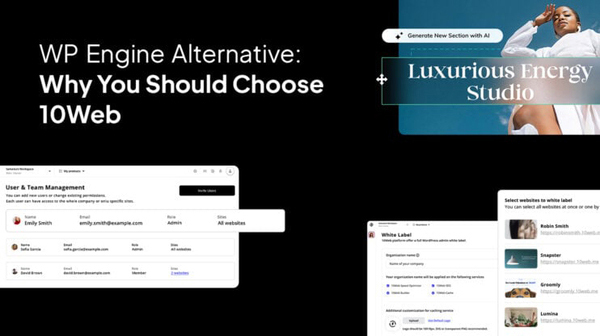Quick Website Audit Tools Guide
Website Audit Tools Checklist
Website Audit Tools
In today’s digital age, having a strong online presence is essential for businesses looking to succeed. One of the most effective ways to increase visibility and drive traffic to your website is through search engine optimization (SEO). SEO is the process of optimizing your website to rank higher in search engine results pages (SERPs), increasing organic traffic and generating more leads and sales.

Website Audit Tools Challenges
Website Audit Tools
Wix
Wix is a popular website builder that offers a wide range of features and customization options at an affordable price. With Wix, you can choose from hundreds of templates to create a website that fits your needs and style. The drag-and-drop editor makes it easy to customize your site, and the platform also offers a variety of apps and integrations to help you add functionality to your website.
One of the best things about Wix is that it offers a free plan that allows you to create a basic website with Wix branding. If you want to remove the branding and use your own domain name, you can upgrade to one of Wix’s premium plans, which start at just $14 per month. With prices like these, Wix is definitely one of the most affordable website builders on the market.
Weebly
Weebly is another popular website builder that is known for its ease of use and affordability. Like Wix, Weebly offers a drag-and-drop editor that makes it easy to create a professional-looking website without any coding knowledge. The platform also offers a variety of templates to choose from, as well as features like e-commerce functionality and SEO tools.
Weebly offers a free plan that allows you to create a basic website with Weebly branding. If you want to remove the branding and use your own domain name, you can upgrade to one of Weebly’s premium plans, which start at just $9 per month. With its low prices and user-friendly interface, Weebly is a great option for those looking for an affordable website builder.
Squarespace
Squarespace is a website builder that is known for its beautiful design templates and customizable options. The platform offers a range of features, including e-commerce functionality, blogging capabilities, and analytics tools. Squarespace is also known for its excellent customer support, making it a great option for those who may need assistance along the way.
Squarespace does not offer a free plan, but its pricing is still relatively affordable, with plans starting at $12 per month. While this may be slightly higher than some other website builders, Squarespace’s beautiful design templates and advanced features make it a worthwhile investment for those looking to create a professional-looking website.
WordPress.com
WordPress.com is a popular website builder that is based on the open-source WordPress platform. While WordPress.com may not offer as many customization options as self-hosted WordPress sites, it is still a great option for those looking for an affordable and user-friendly website builder. WordPress.com offers a range of features, including blogging capabilities, e-commerce functionality, and customizable templates.
WordPress.com offers a free plan that allows you to create a basic website with WordPress branding. If you want to remove the branding and use your own domain name, you can upgrade to one of WordPress.com’s premium plans, which start at just $4 per month. With its low prices and advanced features, WordPress.com is a great option for those looking to create a professional website on a budget.
An SEO audit is a thorough examination of a website’s performance in terms of search engine optimization. It involves analyzing various elements such as on-page and off-page optimization, technical aspects, content quality, and user experience. By conducting an SEO audit, businesses can identify areas of improvement, fix any issues that may be hindering their SEO efforts, and ultimately improve their website’s visibility and ranking on search engines.
There are several key steps involved in conducting an SEO audit:
1. Reviewing Keywords and Content: One of the first steps in an SEO audit is to review the website’s keywords and content. Are the keywords relevant to the business and its target audience? Are they used strategically in titles, headings, meta tags, and throughout the content? Is the content high-quality, informative, and engaging? Analyzing keywords and content is essential for ensuring that the website is optimized for relevant search queries and provides value to visitors.
2. Checking On-Page Optimization: On-page optimization refers to the elements on a webpage that can be optimized for search engines, such as meta tags, headings, images, and internal links. During an SEO audit, it is important to check that these elements are properly optimized with relevant keywords and that they comply with best practices for SEO. This helps search engines understand the content of the website and rank it accordingly.
3. Assessing Technical SEO: Technical SEO involves optimizing the technical aspects of a website to improve its crawlability, indexability, and overall performance in search engines. This includes factors such as site speed, mobile-friendliness, URL structure, and sitemap. By assessing technical SEO during an audit, businesses can identify any issues that may be impacting their website’s visibility and address them to improve their overall SEO performance.
4. Evaluating Backlinks and Off-Page SEO: Backlinks are a crucial ranking factor in SEO, as they indicate the credibility and authority of a website. During an SEO audit, it is important to evaluate the website’s backlink profile to ensure that it is diverse, high-quality, and free from spammy links. Additionally, off-page SEO factors such as social signals, local citations, and online reviews should be considered to enhance the website’s authority and reputation in the eyes of search engines.
5. Monitoring User Experience: User experience plays a significant role in SEO, as search engines prioritize websites that provide a positive and seamless experience for visitors. During an SEO audit, it is important to assess factors such as page layout, navigation, mobile responsiveness, and loading times to ensure that the website meets user expectations and encourages engagement and conversions.
In addition to these key steps, there are several tools and techniques that can be used to conduct an SEO audit effectively. These include:
– Google Analytics: Google Analytics provides valuable insights into website traffic, user behavior, and engagement metrics, which can help identify areas of improvement for SEO.
– Google Search Console: Google Search Console offers data on website performance, indexing status, and search queries, allowing businesses to monitor and optimize their presence in Google search results.
– SEO Auditing Tools: There are several SEO auditing tools available, such as SEMrush, Moz, and Ahrefs, that can analyze various aspects of a website’s SEO performance and provide recommendations for improvement.

The Ultimate Guide to Website Audit Tools
Website Audit Tools
Overall, web developers play a vital role in today’s digital age, as they are responsible for creating and maintaining websites that are essential for businesses and organizations. With the right skills and expertise, web developers can help businesses reach their target audiences, enhance their credibility, and stay ahead of the competition. Web development is a challenging and rewarding field that offers endless opportunities for growth and creativity.

